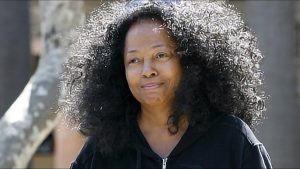
USAID Funding Crisis
USAID Funding Crisis leads to Africa’s Resilience Amidst Aid Uncertainty to Foster Quality Health.
The global humanitarian aid sector is experiencing significant turbulence as reports emerge that the United States Agency for International Development (USAID) is facing budgetary constraints and administrative upheaval.
This development has led to uncertainty, particularly among non-governmental organizations (NGOs) such as Amref Health Africa and World Vision International, which rely on USAID funding to execute their programs. However, Africa’s ability to adapt and innovate in the face of adversity presents a beacon of hope for sustainable solutions.
USAID Work Orders on Hold
Sources indicate that USAID has issued stop work orders on several projects, affecting numerous humanitarian and development initiatives worldwide. A stop work order is a directive that suspends project activities, often due to funding uncertainties or policy shifts.
While such changes disrupt critical aid programs, they also encourage organizations to explore alternative funding models and innovative approaches to development.
Reports suggest that USAID contractors have begun laying off staff due to cash flow constraints, while employees in various countries have been placed on unpaid leave.
Despite these challenges, African organizations and governments are finding ways to sustain progress by leveraging local resources, public-private partnerships, and digital transformation.
Impact on Humanitarian Organizations and Africa’s Response
Organizations like Amref Health Africa and World Vision International play a pivotal role in delivering aid, especially in underserved regions.
Amref Health Africa, a leading NGO focused on public health in Africa, has expressed concerns over the potential suspension of its programs.
However, the organization has also been at the forefront of pioneering homegrown solutions, such as digital health initiatives, community-led interventions, and partnerships with African governments to reduce dependency on foreign aid.
Similarly, World Vision International, a global humanitarian aid organization, relies significantly on USAID grants to implement food security, disaster relief, and child protection initiatives.
Yet, Africa’s strong network of local humanitarian groups and social enterprises is stepping up to bridge the gap, ensuring that essential services continue despite funding uncertainties.
Trump’s Role in USAID Funding Decisions
Former U.S. President Donald Trump has been a central figure in discussions surrounding USAID’s funding policies. During his tenure, Trump proposed significant cuts to foreign aid, arguing for a more ‘America First’ approach to government spending.
This stance led to multiple attempts to reduce funding for USAID and other international development agencies.
While such policies create funding gaps, African nations are increasingly focusing on self-reliance. Countries like Kenya, Rwanda, and Ghana have ramped up investments in healthcare, infrastructure, and entrepreneurship, proving that local innovation can drive long-term development without over-reliance on foreign aid.
Elon Musk’s Involvement in the Aid Conversation
Billionaire entrepreneur Elon Musk, known for his ventures in technology and space exploration, has also made headlines in the aid sector.
Musk’s philanthropic efforts, including his donations to humanitarian causes, have sparked debates on the role of private sector leaders in global development.
Musk recently commented on USAID’s operational challenges, hinting at the possibility of increased private-sector involvement in humanitarian aid.
His companies, such as Tesla and SpaceX, have already contributed to crisis response efforts, such as providing Starlink satellite internet services to conflict and disaster zones.
As Africa continues to embrace digital transformation, partnerships with private-sector innovators like Musk could play a crucial role in expanding access to essential services.
Africa’s Path Forward: Innovation and Self-Reliance
Despite challenges posed by funding uncertainties, Africa’s resilience and ingenuity remain a driving force in the global development sector.
Local NGOs, governments, and entrepreneurs are increasingly investing in solutions tailored to their unique challenges.
- Tech-Driven Development: African startups are using fintech, AI, and blockchain technology to address issues such as healthcare access, financial inclusion, and supply chain transparency.
- Public-Private Partnerships: Governments are collaborating with businesses to fund infrastructure and social programs, reducing dependency on external donors.
- Community-Led Initiatives: Grassroots organizations are empowering communities through skills development, microfinance, and cooperative projects, ensuring sustainable impact beyond aid cycles.
Final Take
While the USAID funding crisis presents challenges, it also underscores Africa’s remarkable ability to adapt and thrive.
Organizations like Amref Health Africa and World Vision International continue to drive impactful change, even in uncertain times.
Meanwhile, figures like Donald Trump and Elon Musk remain influential in shaping the aid landscape, one through policy, the other through private-sector innovation.
As Africa moves forward, its commitment to self-reliance, innovation, and collaboration will play a vital role in securing a prosperous future.
Whether through policy reforms, increased private-sector engagement, or alternative funding strategies, Africa is proving that its development journey is not solely dependent on external aid but rather on its own strength, creativity, and resilience.





